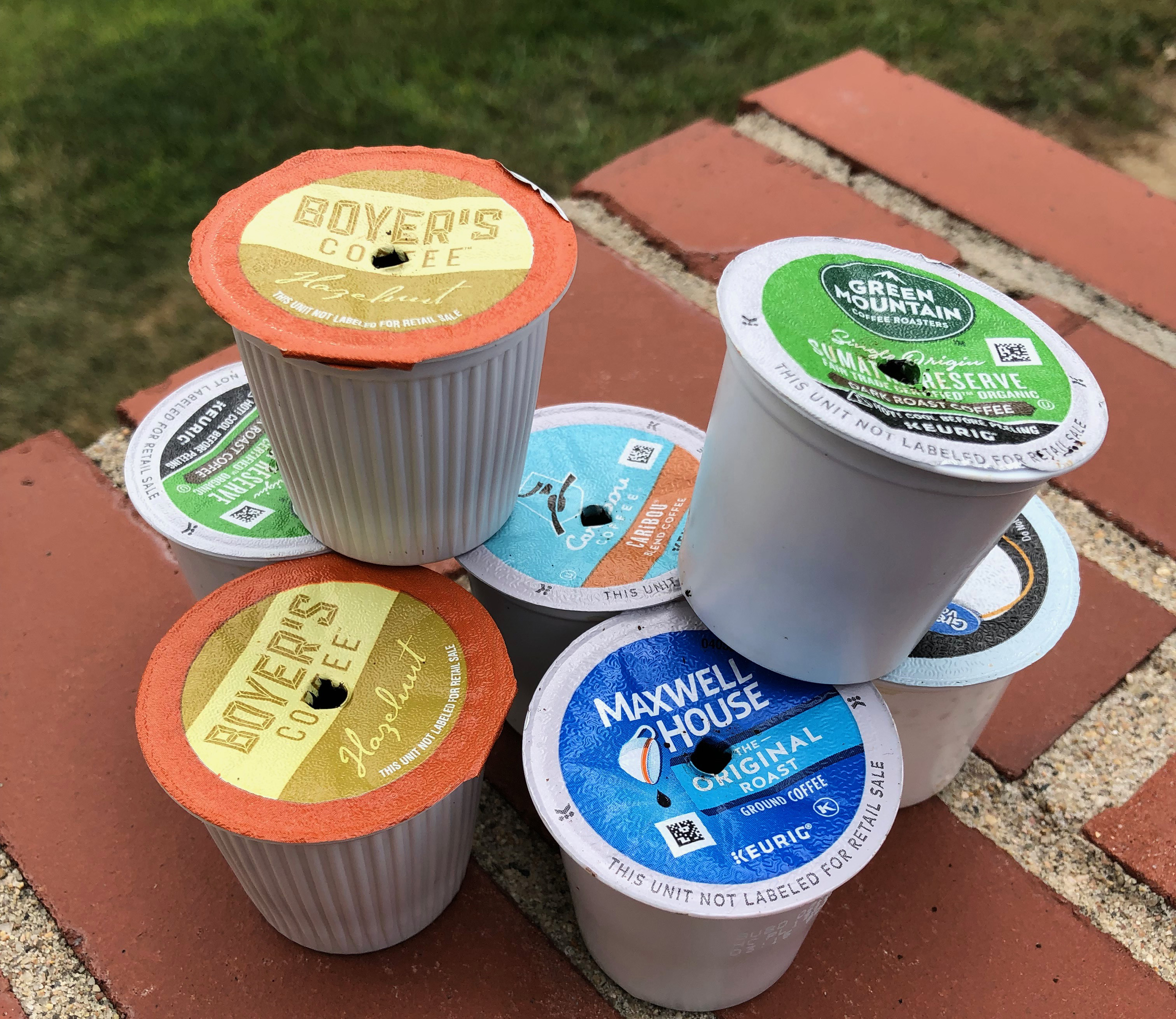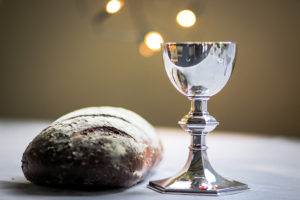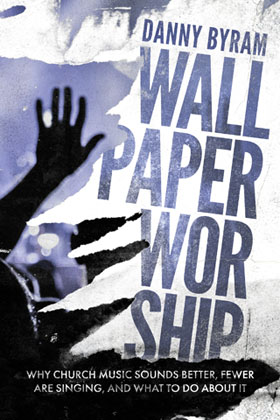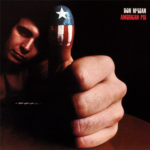
Each morning I put a K-CUP in my Keurig. It produces a decent single cup of morning coffee experience. Then I prepare one for my spouse. I discard the first one and repeat the process. There have been many times I have stared at the plethora of K-CUPs in my kitchen trash, only to grieve their short-lived lives. If you have tried producing another cup of coffee with a used K-CUP, you know the results are less than satisfying. It’s as if the K-CUP says: “Hey! You already used me. I’m done. Move on!”
Modern worship song repertoire can be like that.
Worship leaders are finding it difficult to keep up with the amount of new songs coming into the marketplace. (CCLI has over 100,000 worship songs in its catalog. Spotify reports 40,000 new songs added daily.) Leaders and congregants can get frustrated because there is not enough time to repeat a song to endear it to the hearts of listeners. Too often the result is silent church-goers staring at song lyrics they heard maybe once, somewhere in their week – or was it from last week’s service? With the barrage of material coming at us, many songs are used once and then discarded. K CUP worship songs.
I recently heard of a pastor who told his music team not to use any songs that are over 6 months old. There are a lot of K-CUPs in that worship leader’s trash. I mean, when was the last time you heard the 1990s hit “Shout To The Lord” used in a worship service? Even though I may hear from someone who used it just last week (bless their heart), the point stands: Worship songs we were singing even a few years ago are long gone, out-mode, like used K CUPS: “Hey! You already used me. I’m done. Move on!”

In my WORSHIP WORSKHOP and in my book WALLPAPER WORSHIP, I emphasize the idea that worship (not simply music) is, among many things, our HERITAGE. Harkening to the past is not anti-contemporary. It is ANAMNESIS, the “art of remembering.” Realized or not, when we worship through music or other rituals, we stand on the shoulders of those who went before us.
The classic hymns were the body of song material used by Protestant churches for centuries. Though there were thousands, not all hymns survived. English hymnwriter Isaac Watts (When I Survey The Wondrous Cross, Joy To The World) wrote over 6,000 in the early 18th century. Fanny Crosby, early 20th century American (Pass Me Not O Gentle Savior, Blessed Assurance) wrote over 9,000. Though much of the hymn repertoire is gone, hundreds remain part of our modern heritage of worship music. With today’s songs so quickly discarded, I often wonder if any of our modern songs will stand the test of time? (Be Thou My Vision is cr. 9th century. How’s that for passing the test of time?)

It’s not just our songs (modern or from antiquity) we’ve discarded. We’ve managed to reduce the communion sacrament to a K-CUP. When pastors fail to explain communion to worshipers, and shrink-wrapped communion cups are offered from a basket somewhere in a corner, the implied message: “Take it at your leisure. Put it under your seat or in your purse for later. Take it in the bathroom, the parking lot, wherever or whenever you want.” The only instruction we actually receive: “Make sure to properly dispose of the shrink wrap and the cup in the trash receptacles.” K-CUP Communion.
If we discard most of the songs of our faith in a few years, and we fail to lead people in worship through the richness of experiencing communion corporately, what other elements of our worship heritage are we willing to discard like K-CUPS?
“All that now is will be forgotten in the days to come.” – Ecclesiastes 2:16 (NKJV)
(Let us read your comments, whether you’re experiencing the KCUP phenomenon OR if your worship situation is balanced and fulfilling.)








Good thoughts, Danny! Makes me think of a worship service we attended with our friends, Cal and Linda many years ago in Denver. The entire service was congregational singing of lots of the “old” cherished hymns of yesteryear. And the singing was interspersed with reading of scriptures and testimonies shared by church members. There wasn’t even a formal sermon. It was so beautiful and worshipful….definitely not K-Cup worship! I am going to share this article with the worship leader at our chapel. He has already read “Wallpaper Worship” because I gave him a copy of it when it was released. God bless you.
Sharon, thank you for sharing your own experience. We had a similar experience at Colorado State University with our kids and their peers. The music was all contemporary, yet everyone was engaged, and the testimonies and prayers in between were personal and powerful. Again, style doesn’t matter. Connection with God and one another is what does!
Well said Danny!!
Sometimes I bring a new song that doesn’t quite work and I have to abandon it… an occasional/unintended K-Cup flop! But we usually try to do a new song 3 weeks in a row (perhaps as a prelude first time). And sometimes our “new song” might be a 30-yr-old Michael Card song, or an old hymn!
Lois, I love using an old contemporary song and young people, who are moved by it, come up and ask, “dude did you write that? It was awesome.” That happened once with “Be Thou My Vision.” Keep leading them, Lois!
What an incredibly articulate way of communicating this. Your visuals are perfect, I too use K cups. There are some that are endeavoring to hold onto the sacredness of songs that declared the glory of God and captured our hearts, but as you stated those numbers are dwindling. Thank you for taking the time to communicate this important truth. Even when I was in Bible college in the 90s the worship wars were in full swing. In order for us to navigate going forward we cannot disenfranchise music that our parents or perhaps grandparents found so meaningful as they purposefully and authentically worship God. At the same time we also have to delicately and respectfully create a safe space so that new opportunities for another generation are nurtured. Thanks again
Keith, Thank you for your kind and thoughtful comments. You understand the balance I am trying to convey! May your tribe increase!
I have been a visitor in the kind of worship services you describe–yuch! In our church (Presbyterian), we offer very balanced music–organ, piano, guitar, conga drums, with a mix of hymns, some contemporary, and ethnic music from Ghana/Africa. Our people sing their hearts out–we get comments on this all the time. We introduce new music, but we sing it over and over until it becomes part of our systemic worship experience. Example: this week we are opening with “Be Thou Our Vision”, we have a musical response song from Ghana with drums, we are singing a traditional hymn after the sermon, and ending the service with “Shine, Jesus, Shine” with organ, piano, guitar and trumpet.
JUdy, This is good. It shouldn’t be “one size fits all.” I am hearing from congregants who do not understand why the music we use today is one style. Leaders who lead well are those who allow diversity – but the overall leadership of the church has to condition the congregants to understand why they are choosing to not homogenize their modes of expression. Thanks for sharing.
Danny, thanks for helping us engage with yet another aspect of current worship “issues.” I do enjoy many older songs that have stood the test of time. I also keep CDs of worship music from the past 30 years or so, partly so I can remember songs that have inspired me.
Sadly, most of the songs are not really worth keeping around, in my opinion. (This is true in every music genre, though!) Still, that does not mean we should stop writing new songs. A few will stick with us, and those songs are worth revisiting year after year.
Perhaps what’s missing is taking time to really digest and absorb a song, to meditate on its lyrics and sit with the Lord in worship. Like so many areas of our modern lives, perhaps we could stand to slow down from time to time.
Mollie, I agree and well said. Taking the time to “absorb” a song (or scripture or ?) is a challenge for everyone in our culture. This is why I urge worship leaders to use the songs they sense people are connecting with.
Yes! I thought it was just me not keeping up, but every time I visit a new church there seem to be a multitude of songs I’ve never heard and cannot follow. If the great hymn writers wrote thousands and we only know them for a couple of their songs, maybe the same frustration existed in their time? Surely, certain songs from this era will emerge as classics, (“In Christ Alone” or “How Deep the Father’s Love for Us”), but in the meantime, as you say in your book, teaching songs and repetition are important for participation and meaningful corporate worship.
Beki – I am so glad you get the parallels of worship music of antiquity and now. Yes. Truly the same problems existed, except they didn’t have the internet and digital recording to produce as much as we do today. Thanks for making the connection.
Shine baby ,Shine ! https://japook.com
Thumbs up!